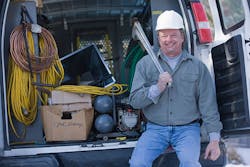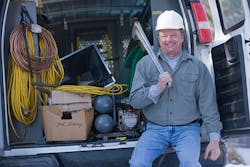Plumbers are doing a lot today to foster sustainability with regard to the environment. They are not doing nearly enough to foster business sustainability with regard to the marketplace. Here are the 8 “P’s” of contracting business sustainability.
1. Pricing: The first step in business sustainability is proper pricing. Most plumbers price too low, subsidizing their customers, yet they worry more about overcharging than undercharging. Overcharge and you might lose customers. Undercharge and you will either lose your business or unnecessarily constrain your lifestyle and business prospects.
Look, as long as consumers accept the prices your charge, they are not too high. Even the government agrees. In Regulation §20.2031-1, the IRS defines fair market value as…
“The fair market value is the price at which the property would change hands between a willing buyer and a willing seller, neither being under any compulsion to buy or to sell and both having reasonable knowledge of relevant facts.”
The IRS is referring to estate valuation, but the principle is the same. A fair price is whatever a willing buyer agrees to pay from a willing seller.
2. Profitability: Closely intertwined with pricing is profitability. Even if you charge at the high end of the market, you can lose money if you let overhead get out of control. Profitable companies manage their numbers. They manage overhead while investing in future growth. Profitability is a reflection of the efficiency of their operation.
3. Performance: Charging enough is not enough. Plumbers must also deliver service commensurate with the prices they charge. This means upping your game. To charge more, you must do more. Everyone may not value a premium service, which is fine. Everyone is not your customer.
4. Positioning: Sustainable businesses are more likely than not to hold unique positions in the marketplace. Define how you will be known, how to tell your business apart from the 500 other plumbing companies and your market. This defines who you are and who you are not, what you do and what you do not do. If you are going to establish a unique position, you cannot be all things to all people.
5. Promotion: Without promotion, without marketing, you are winking in the dark. You know what you are doing. No one else does. Promotion does not need to come from a high dollar ad campaign, though it can. You can use your trucks, personal networking, social media, direct marketing, affinity marketing and an array of other marketing tactics to spread the word about your company.
6. Professionalism: If the negative stereotypes about plumbing companies apply to your company, the business is less likely to be sustainable. Your trucks should be clean and well identified. Your plumbers should be well-groomed and uniformed. Both represent the public face of your company. Both should scream professionalism.
Professionalism extends to the way the phone is answered, the way problems are resolved, and the way your collateral (i.e., invoices, literature, marketing, signage, etc.) appears. It is also the way you operate, including human resources management, training, and so on.
7. Processes: Your business is either people centric or process centric. It is impossible to operate a sustainable business that is people centric, without processes. The people or personality centric business undergoes a complete transformation whenever a key player leaves and takes all of his knowledge with him. This is why most plumbing businesses are not salable to outsiders.
By contrast the process centric business has identified detailed procedures for every step of the operation. There are processes for holding a service meeting, conducting a service call, answering the phone, conducting an employee review and so on. Change personnel and the processes remain constant, leading to continuity, which leads to sustainability.
8. Planning: Business sustainability is not happenstance. Sustainable businesses follow defined plans. There are long range plans, annual plans, marketing plans, hiring plans, training plans and succession plans. While circumstances will always change and you will always have to make changes on the fly, the plans point the direction and keep people focused.
Sustainability in the environment is important. For the contractor, business sustainability is essential.
Matt Michel is CEO of the Service Roundtable. Get all of the tools you need to grow a sustainable plumbing business from the Service Roundtable. Learn more at www.ServiceRoundtable.com or call 877.262.3341.
About the Author
Matt Michel
Chief Executive Officer
Matt Michel is CEO of the Service Roundtable (ServiceRoundtable.com). The Service Roundtable is an organization founded to help contractors improve their sales, marketing, operations, and profitability. The Service Nation Alliance is a part of this overall organization.

